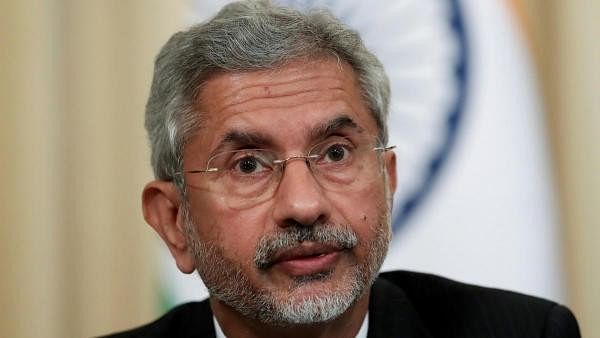
External Affairs Minister S Jaishankar
Credit: Reuters File Photo
Vientiane, Laos: The sea lines of communication passing through the South China Sea are critical for peace and stability of the Indo-Pacific region, External Affairs Minister S Jaishankar on Saturday, as he called for the substantive and effective code of conduct to secure them.
Addressing the 14th East Asia Summit (EAS) Foreign Ministers Meeting in Laos's capital Vientiane, Jaishankar said the EAS process completed two decades next year and India will contribute towards a stronger EAS process.
He said India will continue to uphold ASEAN unity and centrality through our Act East Policy.
Talking about maritime security, Jaishankar said: the "Sea Lines of Communication (SLOC) passing through the South China Sea are critical for peace, stability, prosperity and development of the Indo-Pacific region." The "Code of Conduct should be substantive and effective, consistent with international law and should not prejudice legitimate rights and interest of nations not party to discussions," he said.
Jaishankar's comments hold significance as his Chinese counterpart Wang Yi is also in Vientiane to attend the summit.
The resource-rich South China Sea in the Indo-Pacific region is widely seen as a potential flashpoint for global conflict.
China claims most of the South China Sea as its own, while The Philippines, Vietnam, Malaysia, Brunei and Taiwan have counterclaims over the maritime area.
At the meeting, Jaishankar also called for de-escalation and restraint in Gaza.
"India continues to extend humanitarian assistance to the people of Palestine. Attacks against commercial vessels in the Red Sea are concerning. India is independently contributing to ensuring the safety and security of maritime shipping," Jaishankar said.
On the conflict in Ukraine, he said India maintained the importance of dialogue and diplomacy to resolve it.
"PM @narendramodi recently engaged President (Vladimir) Putin and President (Volodymyr) Zelenskyy. India stands ready to contribute in any manner possible," he said in a post on X.